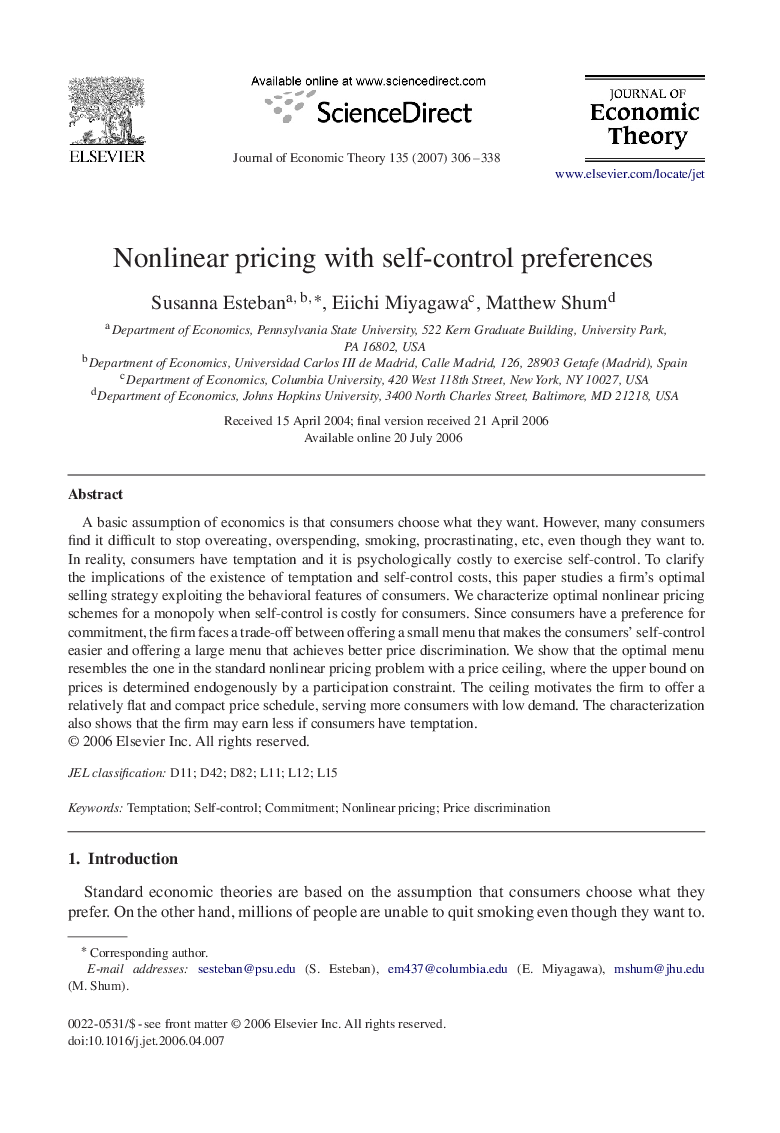| Article ID | Journal | Published Year | Pages | File Type |
|---|---|---|---|---|
| 957710 | Journal of Economic Theory | 2007 | 33 Pages |
Abstract
A basic assumption of economics is that consumers choose what they want. However, many consumers find it difficult to stop overeating, overspending, smoking, procrastinating, etc, even though they want to. In reality, consumers have temptation and it is psychologically costly to exercise self-control. To clarify the implications of the existence of temptation and self-control costs, this paper studies a firm's optimal selling strategy exploiting the behavioral features of consumers. We characterize optimal nonlinear pricing schemes for a monopoly when self-control is costly for consumers. Since consumers have a preference for commitment, the firm faces a trade-off between offering a small menu that makes the consumers' self-control easier and offering a large menu that achieves better price discrimination. We show that the optimal menu resembles the one in the standard nonlinear pricing problem with a price ceiling, where the upper bound on prices is determined endogenously by a participation constraint. The ceiling motivates the firm to offer a relatively flat and compact price schedule, serving more consumers with low demand. The characterization also shows that the firm may earn less if consumers have temptation.
Related Topics
Social Sciences and Humanities
Economics, Econometrics and Finance
Economics and Econometrics
Authors
Susanna Esteban, Eiichi Miyagawa, Matthew Shum,
